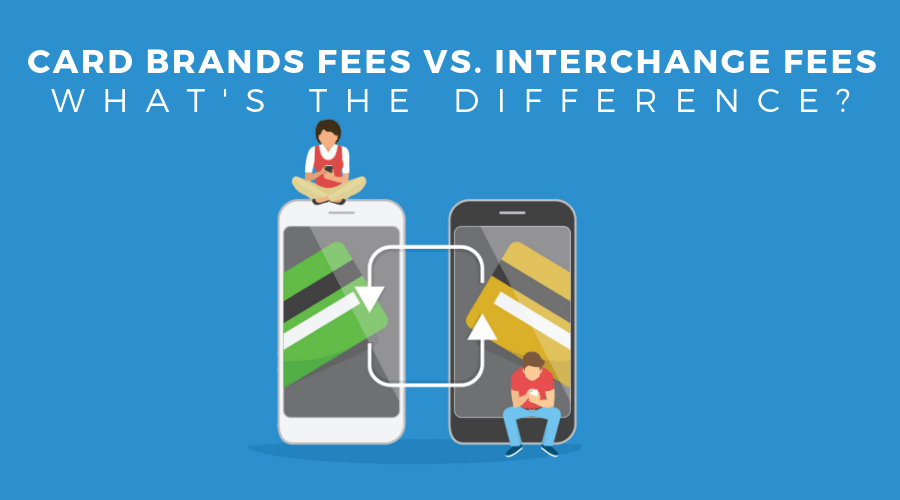Card Brand Fees vs. Interchange Fees – What’s the Difference?

A lot of people don’t carry around cash anymore, so your small business will probably need to accept credit cards. So, you’ll face several different fees, including card brand fees, interchange fees, and chargeback fees. It can certainly give you a headache. To help you make sense of what you’re paying for, let’s look at two of fees you’ll have to pay: interchange fees and card brand fees.
Interchange fees
Interchange fees are paid to the credit card’s bank and will make up the bulk of your costs. For example, if your customer used a Visa Rewards card backed Wells Fargo, the interchange fee for that transaction will go to Wells Fargo.
The amount of each fee is based on
- type of card (Rewards, Corporate, Personal, etc.)
- how the card was processed (swiped, keyed-in, etc.)
- where the card was used (supermarket, gas station, retail, etc.)
Because so many factors affect the interchange fee, there are many rates to monitor. Luckily, Visa and MasterCard both publish their interchange fees. Unfortunately, Discover and American Express require you to get permission from your merchant bank to see their costs.
Read also: Are You Accepting Credit Cards? Follow These 25 Best Practices
Card brand fees
Card brand fees, also called card association fees, go directly to the credit card company instead of the bank. Unfortunately, these rates are not published, but your card processor might be able to help you find out what your fees are. These fees are typically a percentage of your transactions, a flat amount per transaction, or a combination of the two. These fees tend to be smaller than interchange fees but can add up very quickly.
Read also: How do I Get Paid When I Accept Credit Cards?
Wholesale and markup costs
Let’s also compare two costs you’ll run into when you accept credit cards.
- Wholesale costs are paid to the card’s bank (Wells Fargo, Chase, Bank of America, etc.) and the brand (Discover, MasterCard, Visa, American Express). You’ll pay these to your credit card processor, who will get your payments to the right place. You cannot negotiate these amounts. Both interchange and card brand fees are wholesale costs.
- Markup costs are paid to your credit card processor or payment gateway company. When you sign up for a bank account that allows you to accept credit and debit cards (called a merchant account), you’ll be quoted your markup costs. These costs are negotiable and based on things like
- transaction volume
- average transaction amount
- credit score
- how long you’ve been in business
Read also: Do You Have a Good Business Credit Score? Use These Tips to Keep It That Way


